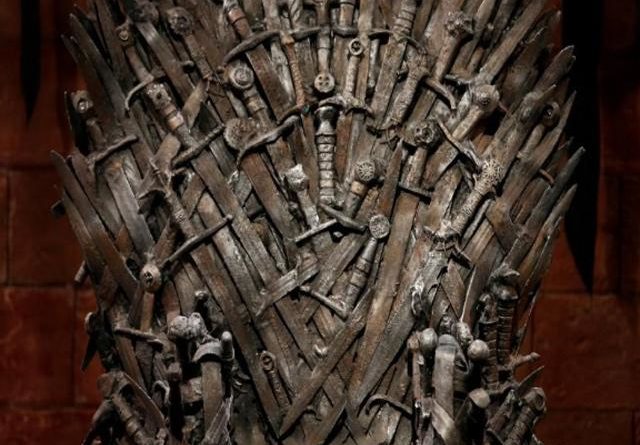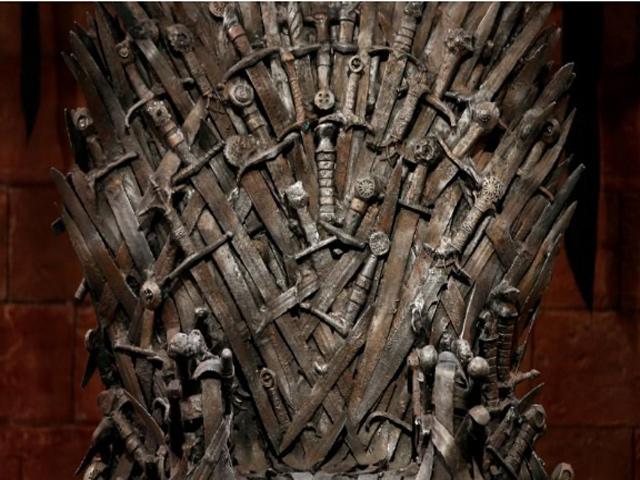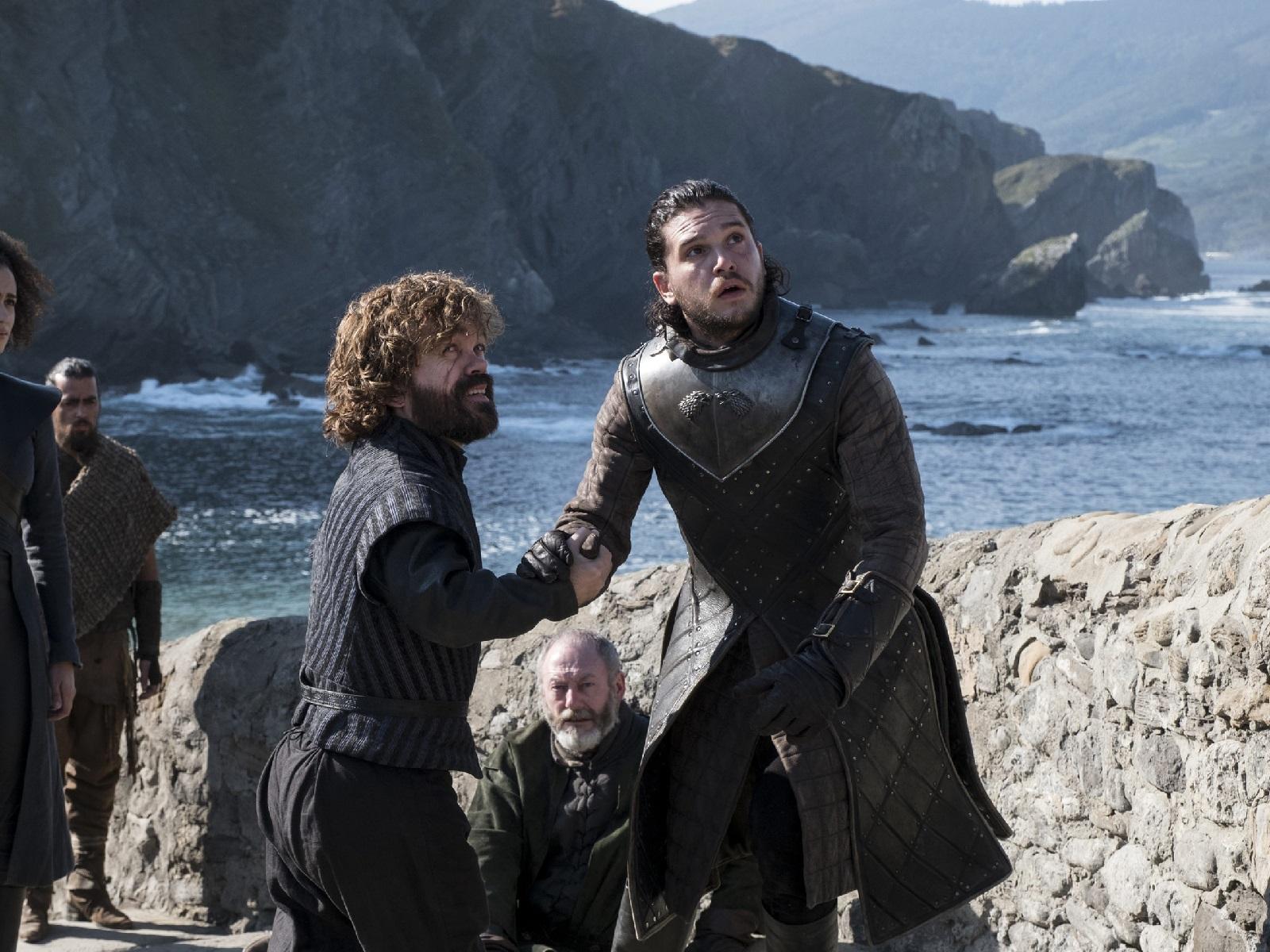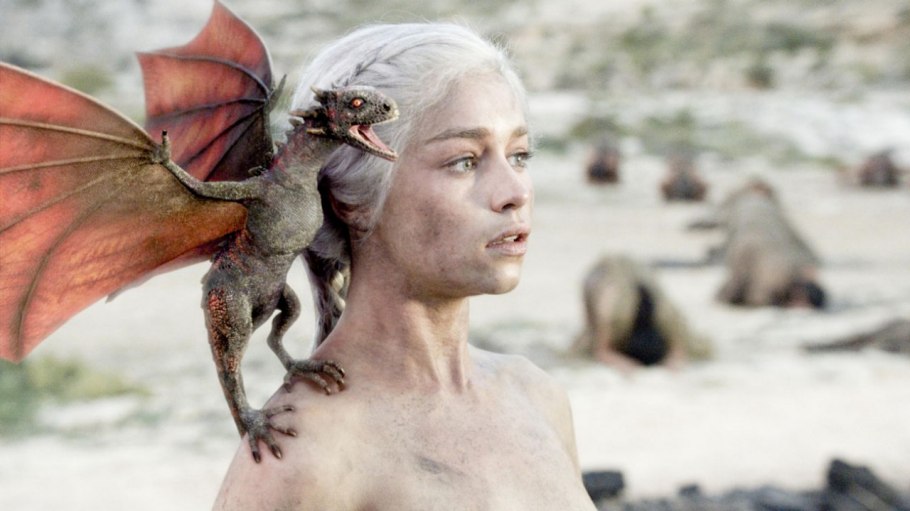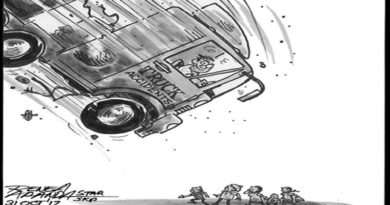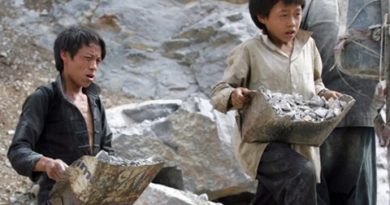Game of Thrones
OPINION
Take on Game of Thrones through theories of international relations
Game of Thrones may have ended two weeks ago, but many fans are still not over with the beloved HBO series. Now that our watch has ended and the story has concluded, we can finally think about how the show reflects our society.
.
Theories of international relations, in particular, could be useful in explaining the actions and motivations of our favorite characters.
Scholars Joseph Nye and David Welch said there are three basic forms of world politics: the imperial system, the feudal system, and the anarchic system.
Under the imperial system, “one government controls most of the world with which it has contact.” Think the Mayan Empire, the Ottoman Empire, the Mongol Empire, among others.
Under the feudal system, “human loyalties and political obligations are determined to a large extent by what happened to one’s superiors.” Think pre-French revolution in medieval Europe.
Under the anarchic system, “states are relatively cohesive but with no higher government above them.” Think the present world, for instance.
All three applies to Westeros.
. . . . . . .
–THIS SPACE BELOW IS RESERVE FOR YOUR ADVERTISEMENT –

 . . . . . . .
. . . . . . . Westeros’ Political System
Before the seven kingdoms were united by Aegon the Conqueror, they likely had a feudal system. Borders were not clearly defined, strong Houses and the territories they control became nodes of power.
When Aegon the Conqueror united the seven kingdoms, Westeros effectively became an empire ruled by the Targaryen dynasty. The feudal system did not totally disappear, but the existence of dragons heavily tilted the balance of power to the ruling House.
Finally, Robert Baratheon’s rebellion ended the Targaryen dynasty and brought forth an anarchic system — what Cersei Lannister called the Game of Thrones.
On paper, the empire still existed. Robert became king of the seven kingdoms. But House Baratheon had no dragons — they’re just the same as everybody else. The balance of power was almost evenly distributed between the original nodes of the feudal system.
The only thing holding everything together was the symbol of power — the Iron Throne. Littlefinger understood this well: “Do you know what the realm is? It’s the thousand blades of Aegon’s enemies, a story we tell each other over and over, until we forget that it’s a lie.”
Littlefinger understood, more than anyone else in Westeros, that the moment Robert Baratheon vacated the Iron Throne, a vacuum of power would be created, and everybody would scramble to take it for themselves.
Hence, chaos. Westeros is an anarchic system, not of states, of Houses.
According to Nye and Welch, there are four main theories of international (or shall we say inter-House) relations in an anarchic system: realism, liberalism, Marxism, and constructivism.
. . . . . . .
–THIS SPACE BELOW IS RESERVE FOR YOUR ADVERTISEMENT –

 . . . . . . .
. . . . . . . Cersei Lannister is a realist
Realists believe that “humanity is in a constant state of war.” They emphasize power, security, and fear — you fear an enemy gaining power, so you gain power yourself to maintain your security. For realists, politics is a zero-sum game: if you win the loyalty of one House, your enemy loses out on their loyalty and services.
Cersei (and Tywin Lannnister) was a realist. From the moment Maggy the Frog prophesied her future, she was in constant fear for her life and her children’s life. So she eliminated anything that can threaten their security and their position of power.
She had Jaime push Bran out the window and sent assassins to kill the boy, because she had to protect her bastard children’s claim to the throne. But the attempt on Bran’s life failed, so she had Robert killed before he could find out. She let Joffrey take Ned Stark’s head because it was easier for her if the secret he discovered died with him.
Tywin Lannister conspired with House Bolton to kill the remaining members of House Stark. They had to remove them from the equation before they could join forces with House Baratheon — a dangerous alliance that brought down the Targaryen dynasty. By killing the Starks, they reduced Stannis Baratheon’s potential allies.
Even then, Tywin had to negotiate an alliance with House Tyrell just to fend off Stannis’ attack on King’s Landing. But this created another problem: Cersei felt threatened by the existence of Margaery. She remembered the prophecy: “You will be queen, for a time. Then comes another, younger, more beautiful, to cast you down and take all you hold dear.”
Cersei armed a religious fundamentalist group to get rid of Margaery and the Tyrells for her. It was a mistake, because the Sparrows’ only loyalty was on the doctrines of their faith. They turned on her easily, and she was forced to clean up her own blunder by blowing up the Sept of Baelor and killing all her enemies in one fell swoop. Clever, but it backfired again: Tommen killed himself because he loved Margaery, and the prophecy was completely fulfilled. Margaery took everyone Cersei loved.
But Cersei was a realist, and so the constant state of war didn’t end there for her.
. . . . . . .
–THIS SPACE BELOW IS RESERVE FOR YOUR ADVERTISEMENT –

 . . . . . . .
. . . . . . . Jon Snow is a liberal
.
Liberals believe that “people could develop ties and make contacts, and therefore anarchy was less of an obstacle to peace.” These contacts between people “make others seem less foreign and less hateful” which lowers the likelihood of conflict. They also believe in democratic values — liberty, equality, and justice. They believe in the rights of the individual.
Jon Snow (and House Stark) is a liberal. When Jon spied on the wildlings, he ended up learning their ways and understanding them more than anyone in Westeros ever could. He started calling them free folk. His time with them enabled him to trust Mance Ryder enough in order to negotiate with him, alone, just after an evening of fierce battle. He bent the knee easily, first to Stannis and then to Daenerys, because he understood the value of cooperation.
The Northern code is for the judge to be the executioner, to know what it feels like to take the life of a person. The Northern code is mercy through swift death — beheading. For present day standards, this is barbaric. For Westeros standards, this is the norm. But still, every time Jon had to take a life to give justice, he hated every minute of it. So when Stannis sentenced Mance to die by fire, Jon showed mercy and shot an arrow towards Mance’s chest to spare him from the pain of burning.
House Stark didn’t want to kill Lannister children. When the Karstarks went against orders and killed their prisoners, Robb gave them justice even at the cost of weakening his army. Robb trusted Theon to negotiate with Balon Greyjoy on his behalf, because he was aware they need more allies. Even as he broke his marriage agreement, he still went to negotiate with the Freys for an alternative, because he needed their cooperation.
When Catelyn Stark captured Tyrion, she put him on trial. When Tyrion was deemed innocent by the result of the trial by combat, she let him go. Catelyn negotiated with Jaime Lannister to get her daughters back. At the Red Wedding, she still attempted to negotiate with Walder Frey to let Robb go.
Jon is Aegon Targaryen, but he isn’t Fire and Blood. House words are not stamped on children when they are born — they are repeatedly inculcated as the children grow. Jon Snow was raised a bastard, but he is, without a doubt, Ned Stark’s son.
“When the snows fall and the white winds blow, the lone wolf dies but the pack survives.” Cooperation. Liberalism.
. . . . . . .
–THIS SPACE BELOW IS RESERVE FOR YOUR ADVERTISEMENT –

 . . . . . . .
. . . . . . . Daenerys Targaryen is a Marxist
.
Marxists focus on the “domestic economic structure of capitalist states.” They are concerned about “the dangers of gross economic inequality.” If Liberals allow inequality for the sake of personal freedoms, Marxists in practice, as history tells us, were willing to suspend such freedoms for the sake of the common good. This was why the Communist states of the past were authoritarian.
Daenerys Targaryen was a Marxist. She was the Breaker of Chains — a clear allusion to Marx’ writings. She delivered an impassioned speech to the slaves of Astapor and Meereen, and the slaves freed themselves. “You have nothing to lose but your chains.” And lose their chains they did.
Daenerys Targaryen was also authoritarian. Unlike Jon Snow, she had no compunction killing people in cruel ways — trapping Xaro Xhoan Daxos and her handmaiden Doreah in a vault, crucifying Meereenese nobles, burning people who would not bend the knee. People who disagree with her don’t get to choose what is good, she said before she died.
The only time she felt bad about killing people was when Drogon indiscriminately burned a child, so she temporarily chained Viserion and Rhaegal. But overtime, she had come to accept the deaths of the innocent as collateral damage. “We can’t hide behind small mercies. The world we need won’t be built by the men loyal to the world we have,” she told Jon.
Daenerys’ Marxist rhetoric eventually became motherhood statements as she gained more power and became closer to the Iron Throne. She wanted to break the wheel, but in the end she was also a part of that wheel. Her turning point was learning that Jon is the true heir to the Iron Throne — for a long time she was secure in the legitimacy of her claim, but all of a sudden everything she built could fall apart.
Seeing Jon beloved by his people and Sansa’s obvious distrust added fuel to the fire. So she rushed to take King’s Landing before Sansa could act against her. She beat Jon to the throne and flexed her power to deter Sansa. “Let it be fear,” she said. In effect, she became a realist. Just another player in the Game of Thrones.
. . . . . . .
–THIS SPACE BELOW IS RESERVE FOR YOUR ADVERTISEMENT –

 . . . . . . .
. . . . . . . Brandon Stark is a constructivist
Constructivists believe that “social structures shape people’s identities and interests.” They believe that we need “not just explanations of how things are, but explanations of how they come to be.” They “emphasize the importance of ideas and culture in shaping both the reality and discourse of international politics.”
Brandon Stark (as the Three-Eyed Raven) is a constructivist. For what are ideas but stories? “What unites people? Armies? Gold? Flags? Stories. There’s nothing in the world more powerful than a good story. Nothing can stop it. No enemy can defeat it,” Tyrion said when he voted for Bran to be the new king.
The Targaryen dynasty maintained an empire through the story of Aegon the Conqueror. Robert Baratheon gathered support for his rebellion through the story of Lyanna Stark. Tywin Lannister used “Rains of Castamere” to intimidate his enemies. Melisandre made Stannis believe that he was chosen by the Lord of the Light.
Bran inherited all the stories of the world. He knows which stories are real, and which ones are lies. Theoretically, he can find out, at any given moment, what motivates people’s actions. He was able to trust Jaime Lannister, because he knew that the Oathbreaker narrative was a lie. Jaime killed the Mad King not because he was more loyal to his father, but because Aerys was going to kill everyone in King’s Landing with wildfire. So when he pledged to fight for the living, Bran knew it was true.
With his powers, he is immune to security dilemmas. Bran will know exactly who to be wary of and who to trust. He won’t be like the late Starks, whose downfall came swiftly because they were ready to trust everyone. Neither will he become like Cersei and Daenerys, with their Us-Against-World mentality. He is, quite honestly, a cheat code. It’s like being governed by an omniscient God.
The Iron Throne, the symbol of power, is gone. Bran will have a chance to unite the people of Westeros through a different story. Perhaps he will tell them of the story of the Children of the Forest, and the First Men, and the White Walkers. Perhaps not. But he knows, more than anyone else in Westeros, that stories do not have an ending.
All hail Bran the Broken. Long may you reign, sweet summer child. —LBG, GMA News
. . . . . . .
–THIS SPACE BELOW IS RESERVE FOR YOUR ADVERTISEMENT –

 . . . . . . .
. . . . . . . 
All photographs, news, editorials, opinions, information, data, others have been taken from the Internet ..aseanews.net | [email protected] |.For comments, Email to :D’Equalizer | [email protected] | Contributor

